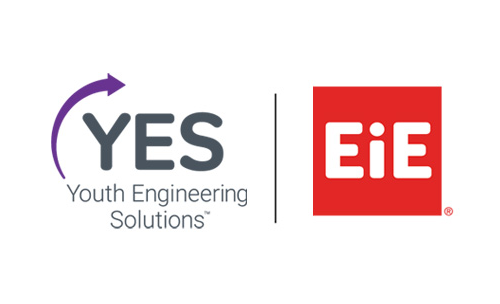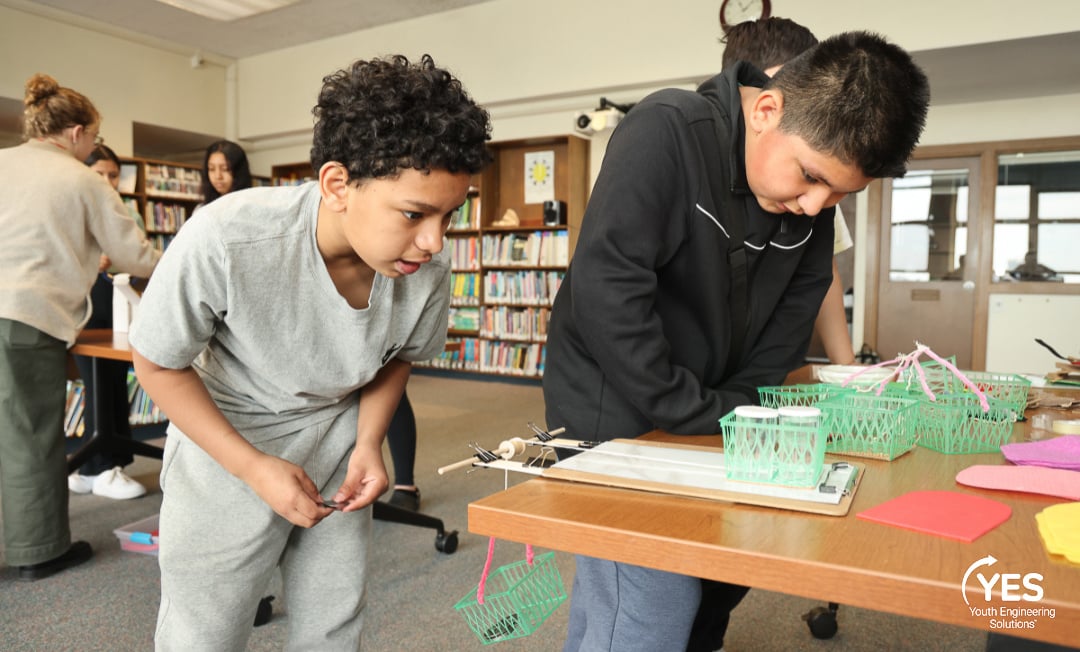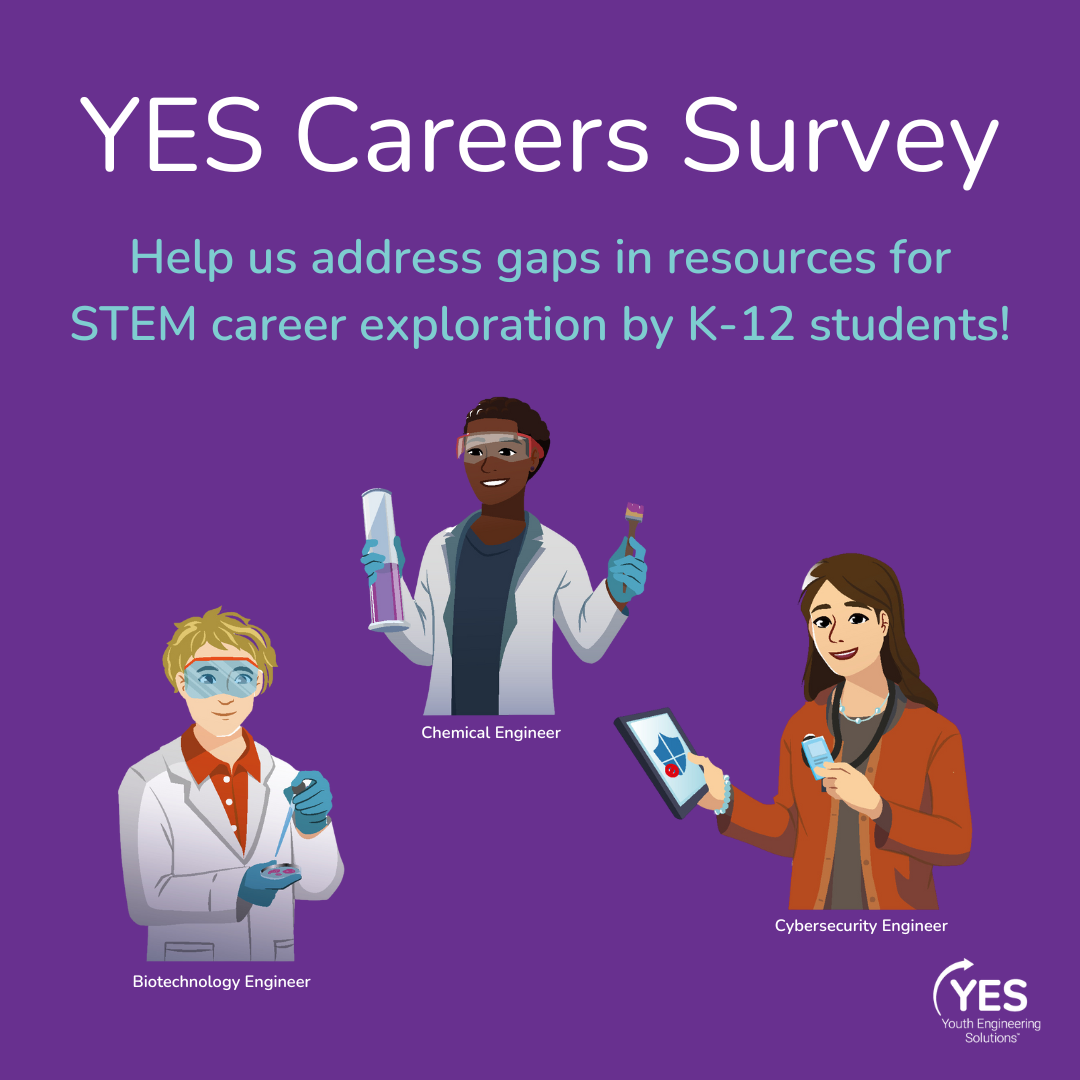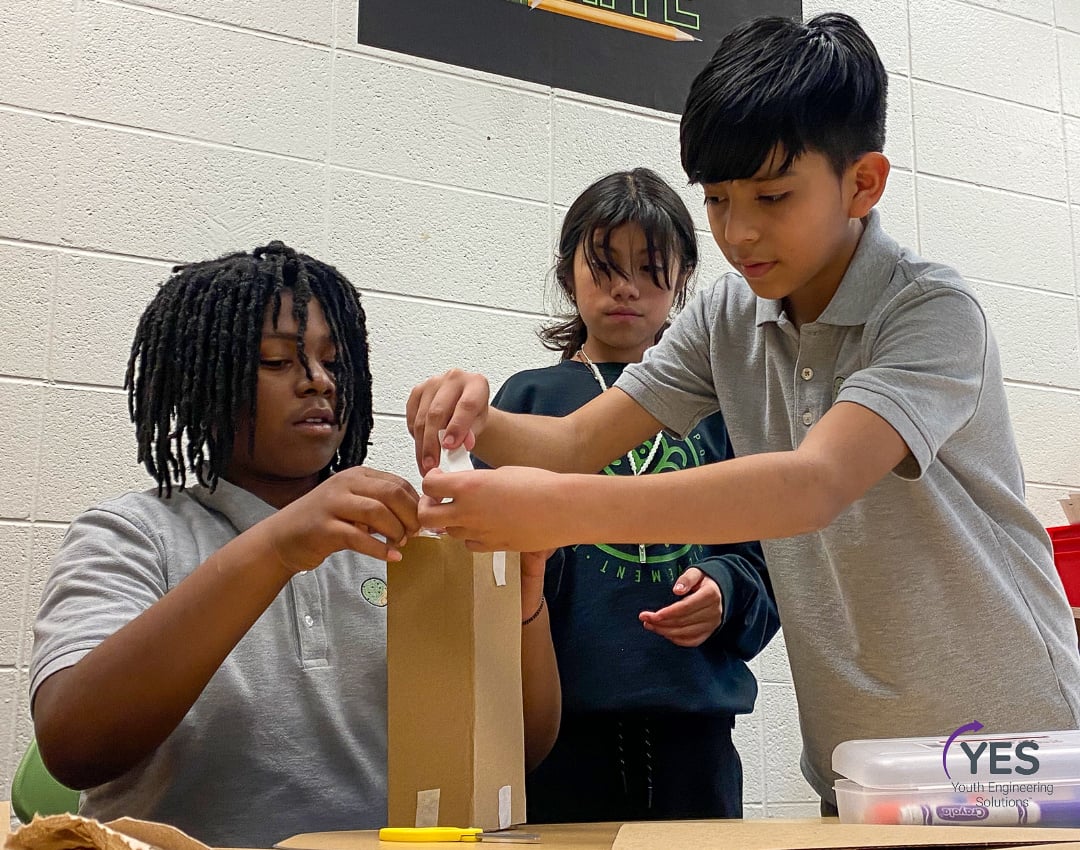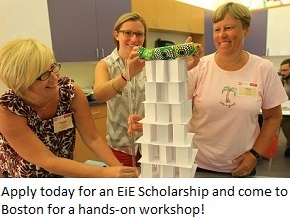 We’re very pleased to announce that we're investing in a new opportunity for elementary educators who want to integrate engineering into their classroom instruction: the first-ever EiE Scholarships.
We’re very pleased to announce that we're investing in a new opportunity for elementary educators who want to integrate engineering into their classroom instruction: the first-ever EiE Scholarships.
Applications are being accepted now through Dec. 16th 2015 for the first round of awards; we’ll announce the recipients in late January 2016.
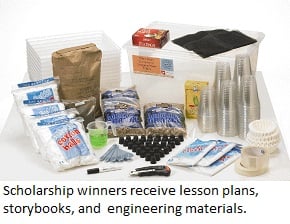 Everything You Need to Start Engineering
Everything You Need to Start Engineering
Each recipient of an EiE Scholarship will receive tuition to attend an EiE professional development workshop at our headquarters at the Museum of Science, Boston.
Travel expenses and EiE curriculum materials (a Teacher Guide, class set of EiE storybooks, and Materials Kit) are also included with the scholarship award.
Building on Success
The $200,000 initiative is modeled after a highly successful corporate-funded initiative, the Raytheon-EiE teacher scholarship program, established in 2011.
The Raytheon scholarships supported many educators from high-needs districts in urban areas; the first round of new EiE scholarships will target elementary educators at rural schools, as well as teachers whose classes include a high propo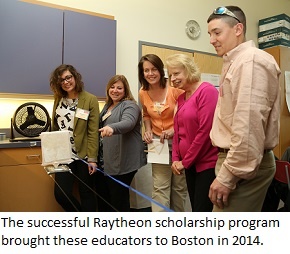 rtion of English Language Learners (ELLs). A second round of EiE scholarship awards will be made in the spring. The initiative is expected to award up to 200 scholarships.
rtion of English Language Learners (ELLs). A second round of EiE scholarship awards will be made in the spring. The initiative is expected to award up to 200 scholarships.
"This new program is a direct expression of commitment to our core mission, which is to see that all students have access to high-quality engineering education starting at an early age," says EiE director and Museum vice president Christine Cunningham. "Giving teachers the tools and training they need to be successful teaching engineering is an important step towards making that happen."
"We are very excited to offer elementary educators our own scholarship program," says Museum president and director Ioannis Miaoulis. "It will build on the impact of successful corporate-funded EiE scholarship programs, such as one established by Raytheon, and greatly expand our ability to bring engineering to more teachers and students across the country."
Meeting a Need for High-Quality STEM PD
We’re reaching out to rural and ELL teachers for the first round of funding because the needs are great. According to the National Center for Education Statistics, 12 million children—one in four students—attend rural schools; administrators at these schools say, it’s challenging to recruit and retain effective teachers, and that lack of professional development and other support tools factors in to that challenge; even when good professional development is available, it may not be tailored to the realities of rural classrooms.
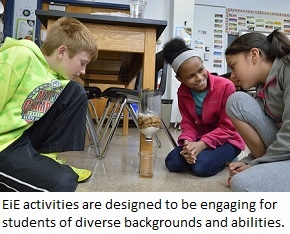 Meanwhile, according to the Migration Policy Institute, about 5 million children—nearly one in ten students—are considered ELLs; studies show these students usually learn “social” English quickly, but mastering an academic vocabulary—and in particular the technical terms used in science and engineering—can be a challenge.
Meanwhile, according to the Migration Policy Institute, about 5 million children—nearly one in ten students—are considered ELLs; studies show these students usually learn “social” English quickly, but mastering an academic vocabulary—and in particular the technical terms used in science and engineering—can be a challenge.
The 2005 National Assessment of Educational Progress in science found that 72 percent of 4th grade ELL students scored below “basic,” compared to just 29 percent of non-ELL students.
Professional Development Makes a Difference
We know that getting high-quality professional development makes a difference because we (and others) collect the data, but also because teachers tell us. Here’s what some recipients of the original Raytheon scholarships had to say:
“The EiE trainers were able to show me HOW I can integrate the curriculum with reading and math and science. That gave me the confidence do this in my classroom, and also the confidence to go on to train other teachers.”
Amon Rwito, resource teacher, Kate Sullivan Elementary School in Tallahassee, FL
"I was ecstatic to be awarded a scholarship! Iwas already working to integrate engineering into the school curriculum; it was a big boost, that what I was doing was being recognized.”
Debra Palmer, 4th grade teacher,Cesar Chavez Elementary School, Long Beach, CA
"I was already using the EiE curriculum when I was awarded a scholarship. But I felt like we were not teaching as well as we could have. The workshop made clarified so much. I can’t put it in words . . . it was really, really powerful for me.”
Deena Azzolin, 2nd grade teacher, Vista Del Monte Elementary School, Palm Springs
Spread the Word
Do you know a rural elementary teacher or a teacher of ELL students who would benefit from an EiE scholarship? Please share this link or this blog post today!
Apply for an ELL Scholarship
Apply for a Rural Scholarship
Engineering is Elementary is a project of the National Center for Technological Literacy® at the Museum of Science, Boston.
